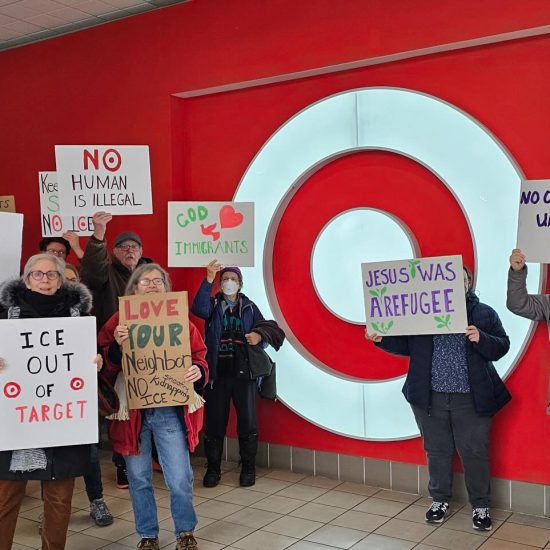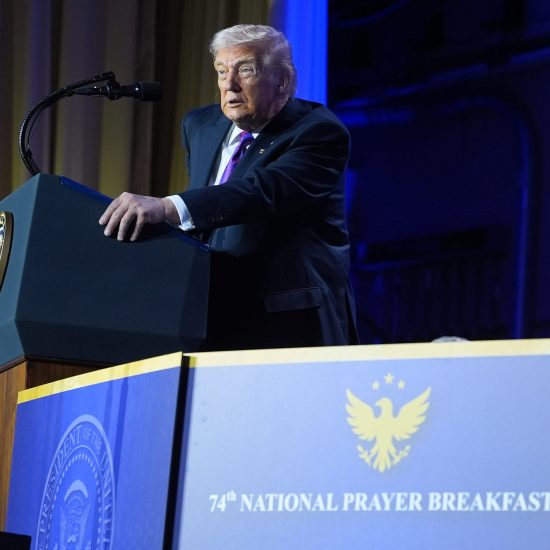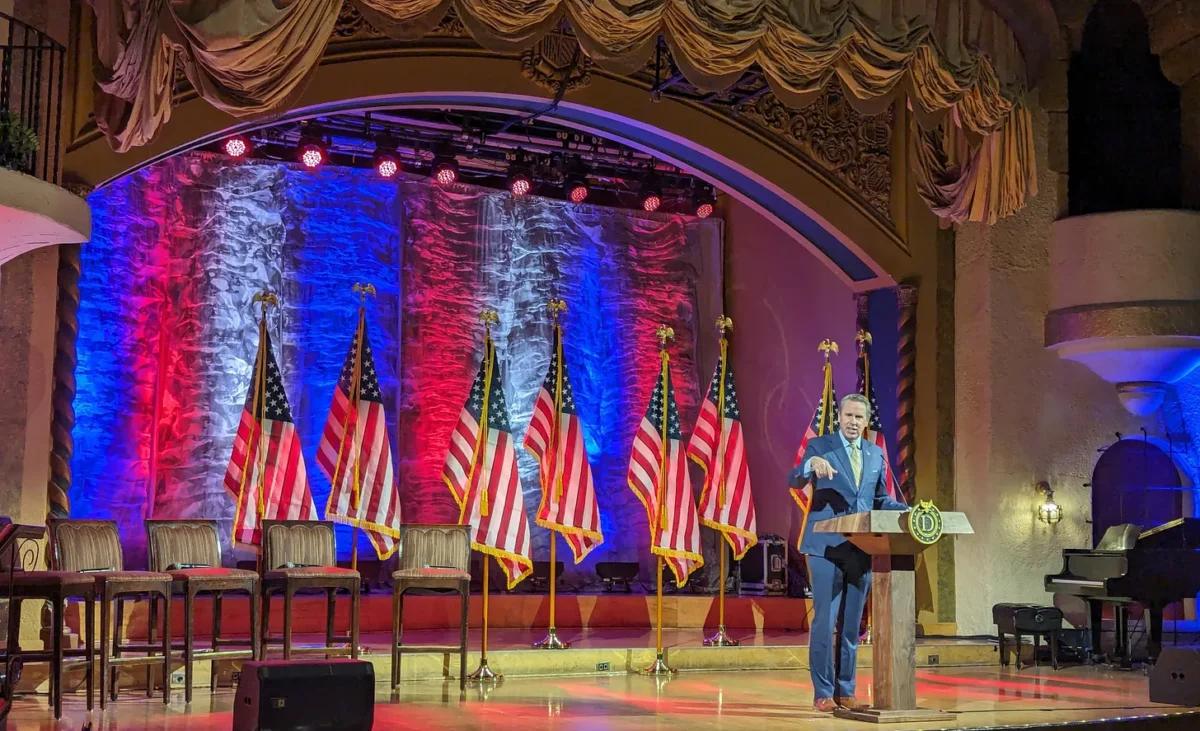
Southern Baptists aren’t sure if they want to say the Nicene Creed. Three motions promoting it on Tuesday (June 11) during the Southern Baptist Convention’s annual meeting were ruled out of order or punted for study over the next year. But since the SBC is the nation’s largest Protestant denomination, the mere proposals sent the Nicene Creed trending on social media.
However, the nearly 11,000 Southern Baptists present at the meeting this week in Indianapolis, Indiana, are certain about a creed they do want to recite: the U.S. Pledge of Allegiance.
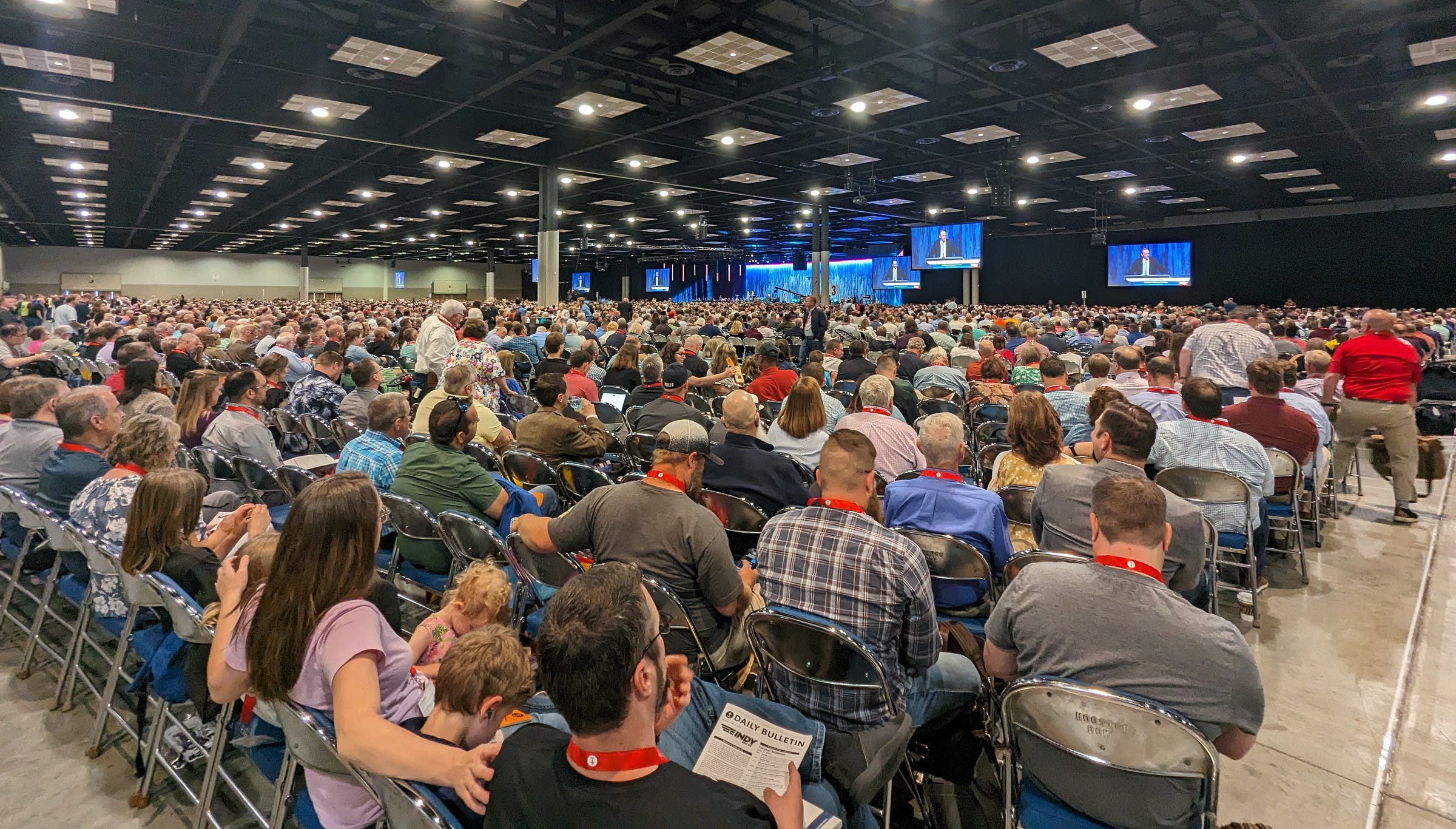
Nearly 11,000 messengers attend the Southern Baptist Convention’s annual meeting in Indianapolis, Indiana, on June 11, 2024. (Brian Kaylor/Word&Way)
Just a few moments after the first motion on the Nicene Creed, the meeting featured the annual time to celebrate God and country as military chaplains marched onto the stage, several of them in uniform. Chaplain Major General Doug Carver, the executive director of chaplaincy for the SBC’s North American Mission Board, asked the messengers to join them in saying the Pledge. A flag was already on stage — where it would stand throughout the SBC meeting.
After the Pledge and remarks by Carver about the importance of chaplains, Chaplain Major Randy Kitchens prayed to offer thanks for the sacrifices of soldiers and Jesus: “O Lord God, we offer thanksgiving to you for our freedom in our nation paid for by the shed blood of our military and first responders, and also our freedom in Jesus paid for by your son’s shed blood.”
Watching the messengers stand and declare their allegiance to the U.S. during a denominational gathering struck Rev. Eric Sherwood as problematic. The pastor of Gore Springs Baptist Church in Gore Springs, Mississippi, he walked to the microphone later that day to offer his own motion: “I move that the Southern Baptist Convention remove pledges of allegiance to any earthly kingdom from all convention activities.”
I caught Sherwood right after his motion received a second and was sent to be considered by a committee to get scheduled for debate, referred to another committee, or deemed out of order.
“I wanted to make this motion just for clarity,” he told me. “Our allegiance ought to be to Christ alone, and so as a convention, as we gather as churches, a pledge of allegiance to an earthly nation is inappropriate. Christians from the early church would be rather awestruck at what we are doing at pledging allegiance to an earthly nation. They regularly gave their lives for not saying, ‘Caesar is lord.’ And it’s a small step from ‘I pledge allegiance to X’ to ‘X is lord.’”
Sherwood, who emphasized he loves the U.S., said he didn’t expect his motion to pass, but he still felt it important to offer. He proved prophetic. Sherwood got a chance to address messengers on Wednesday after his motion was scheduled for debate.
“This and every year we gather as messengers from Southern Baptist churches. That is, we gather as ambassadors from embassies of a kingdom that is not of this world,” Sherwood told messengers. “This nation, as good as it is, is not our hope.”
After he made his case, a messenger from Maryland who is also a lieutenant in the U.S. Navy spoke against the motion. He insisted they should declare their allegiance and loyalty to the United States, and work to make it a Christian nation.
“The United States itself is only great when it is a nation conformed to the principles of God’s word,” he argued. “When we pledge allegiance to the flag and our republic, we declare at this convention and before our nation that we seek to serve God by faithfully serving this country.”
With a condensed time since the meeting was running behind schedule, the matter went to a vote without more speeches for or against. A few hands holding orange ballots went up into the air after SBC President Bart Barber asked who was in favor of the motion. A sea of orange broke out a few seconds later when Barber asked who opposed the motion. Well more than 90% of the room voted to support saying the Pledge at next year’s meeting in Dallas, Texas.
Sherwood wasn’t surprised. Nor probably was anyone. The stage had already been set. Literally. Not only did a U.S. flag stand to the right of the pulpit for the entire meeting, but it did so in what the U.S. Flag Code calls “the position of superior prominence.” That means, it was put in place to designate it as the highest authority, while the other flag on stage — the Christian flag — remained in the subordinate place off to the left of the pulpit. Allegiance pledged.
While the issue that sparked national attention ahead of the annual meeting — a constitutional change to bar women from any pastoral staff position — failed, other significant votes also warrant attention. Along with the debate over the Pledge, several moments showed Southern Baptists considering issues of patriotism, politics, and Christian Nationalism. So this issue of A Public Witness takes you inside the SBC meeting for God and country.
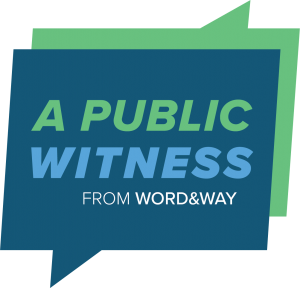
The rest of this piece is only available to paid subscribers of the Word&Way e-newsletter A Public Witness. Subscribe today to read this essay and all previous issues, and receive future ones in your inbox.


